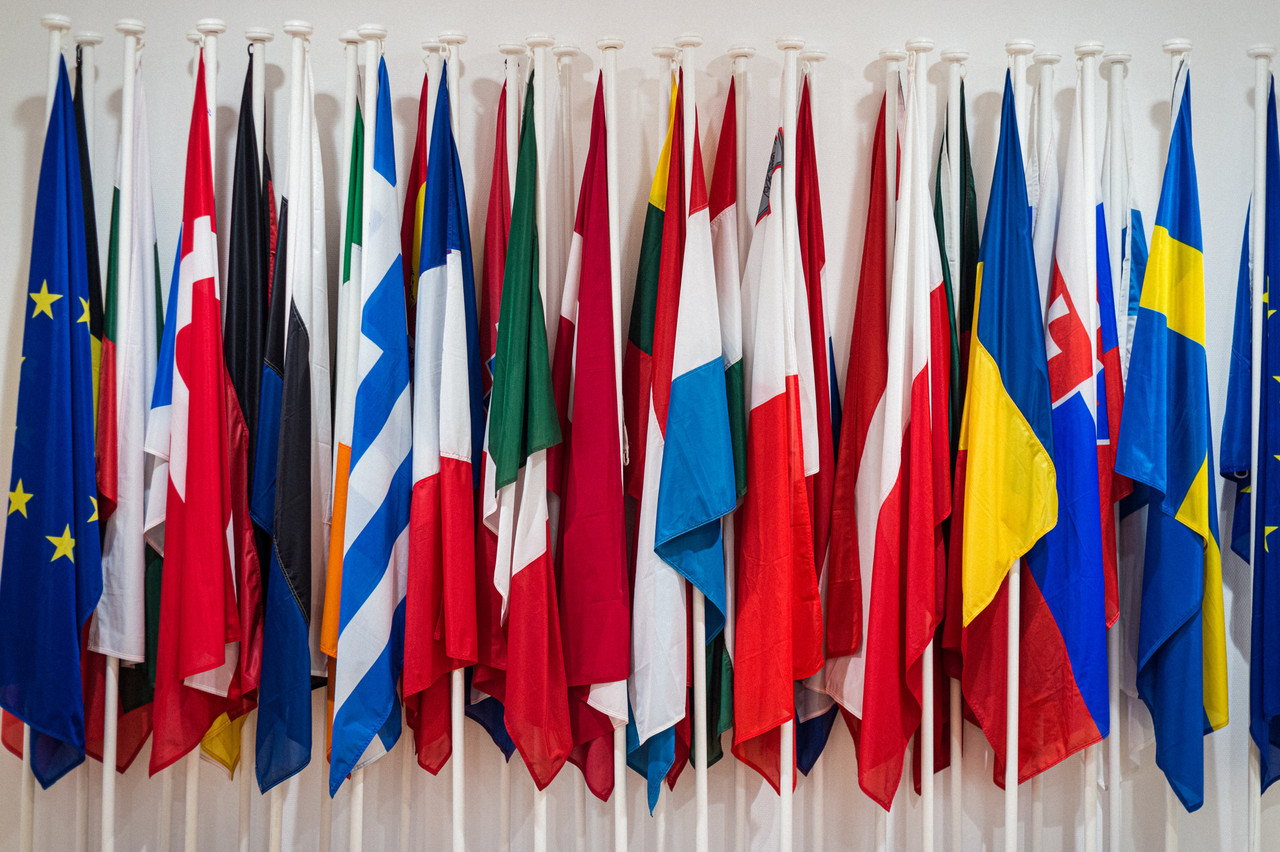Only 43% of people in Luxembourg said they trust the European Union in the latest Eurobarometer survey, carried out in January and February this year. This leaves the country in the bottom five of an EU-wide ranking and below an average of 47%. People in Portugal (69%), Ireland (61%) and Estonia (63%) trust the EU the most.
“It’s a mirror of what citizens think of Europe,” said Anne Calteux, head of the European Commission’s representation in Luxembourg, during a press conference on Monday. The Eurobarometer, she said, is an important tool for the commission. “We will incorporate the results of this survey into our work.”
Back in 2007, two thirds of people in Luxembourg still expressed their support for the union, this dropped in the wake of the 2008 financial crisis to reach between 54% to 56% in the years 2017 to 2019. Following the start of the pandemic, the EU’s popularity fell to 48% in 2021 and dropped even further this year.
“We are in a crisis situation,” said Calteux. “We’re slipping from one crisis into the next.”
The recent survey was carried out prior to Russia’s invasion of Ukraine. But, for example, it saw 85% of respondents in Luxembourg support closer defence cooperation in the EU, leaving the country in sixth place out of 27 member states and well above an EU average of 77%.
Residents also supported closer cooperation on energy, foreign policy and immigration, and workplace equality.
Housing, cost of living top concerns
And even though the war has exacerbated the energy crisis, rising prices and inflation were already at the top of the list of worries of citizens last year.
Housing (54%) and the cost of living (50%) were cited as the top two challenges for Luxembourg by respondents in the EU. Concern over the cost of living was up 19% compared to the last survey in the summer of 2021.
The cost of living also topped the list of challenges for the EU, with just under one third of people in Luxembourg listing it as an EU problem, followed by immigration and climate change. The latter dropped in both the national and EU list of priorities although it remained more important for younger generations.
Young people in general are also more optimistic about the EU and its future, said Tommy Klein of TNS Ilres, which carried out the survey. More than half of 15 to 24-year-olds, for example, supported the EU. Upholding that youthful optimism and preventing people from losing interest in the EU in older age is one of the challenges to be tackled, Klein said.
But just because the EU has lost in popularity doesn’t mean people in Luxembourg are anti-Europe, Klein and Calteux said. Elsewhere in the survey, more than three quarters of respondents said they feel attached to the EU, two-thirds said Luxembourg is better off in the EU and more than 90% supported the free movement of people. And 87% supported the euro currency, well above an EU average of 69%.
“We fully stand behind Europe,” Klein said.
The war in Ukraine meanwhile is “a decisive moment for Europe. It’s a wake-up call for Europe,” said Calteux, adding that it must also be an opportunity for Brussels to explain what Europe does, what it stands for and bring it closer to the people.
